This Is Your Brain on Music
From John Legend’s lullabies to Tony Bennett performing at 95 alongside Lady Gaga, how melodies shape our minds at every age
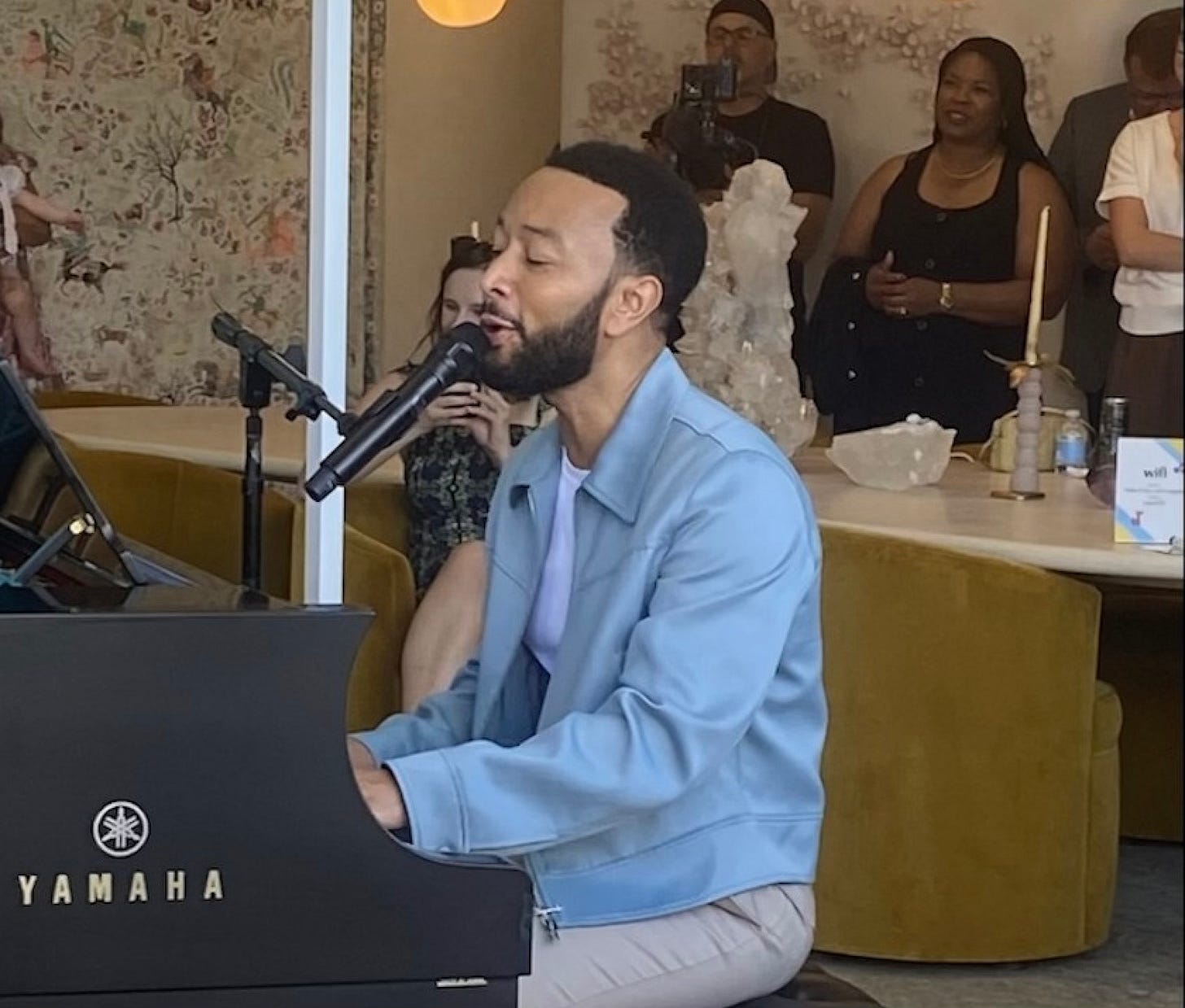
Last year, I was invited to John Legend and Chrissy Teigen’s home for the launch of his first children's album, My Favorite Dream. Produced by Sufjan Stevens, this is Legend’s Fisher-Price collaboration filled with lullabies and playful sing-alongs. Legend shared how making up little songs and jingles with his kids inspired the album, and the project went on to earn a Grammy nomination for Best Children’s Album.
That day, with toddlers and parents alike moving to the beat, I was reminded of something profound: music is more than entertainment. It’s brain food.
A moment from Legend at the piano. A reminder of how music lights up memory, connection, and joy.
Growing up with music
I grew up with a multicolored xylophone, took piano lessons, played the flute in grade school, and made up songs while shaking the maracas my parents bought on vacation.
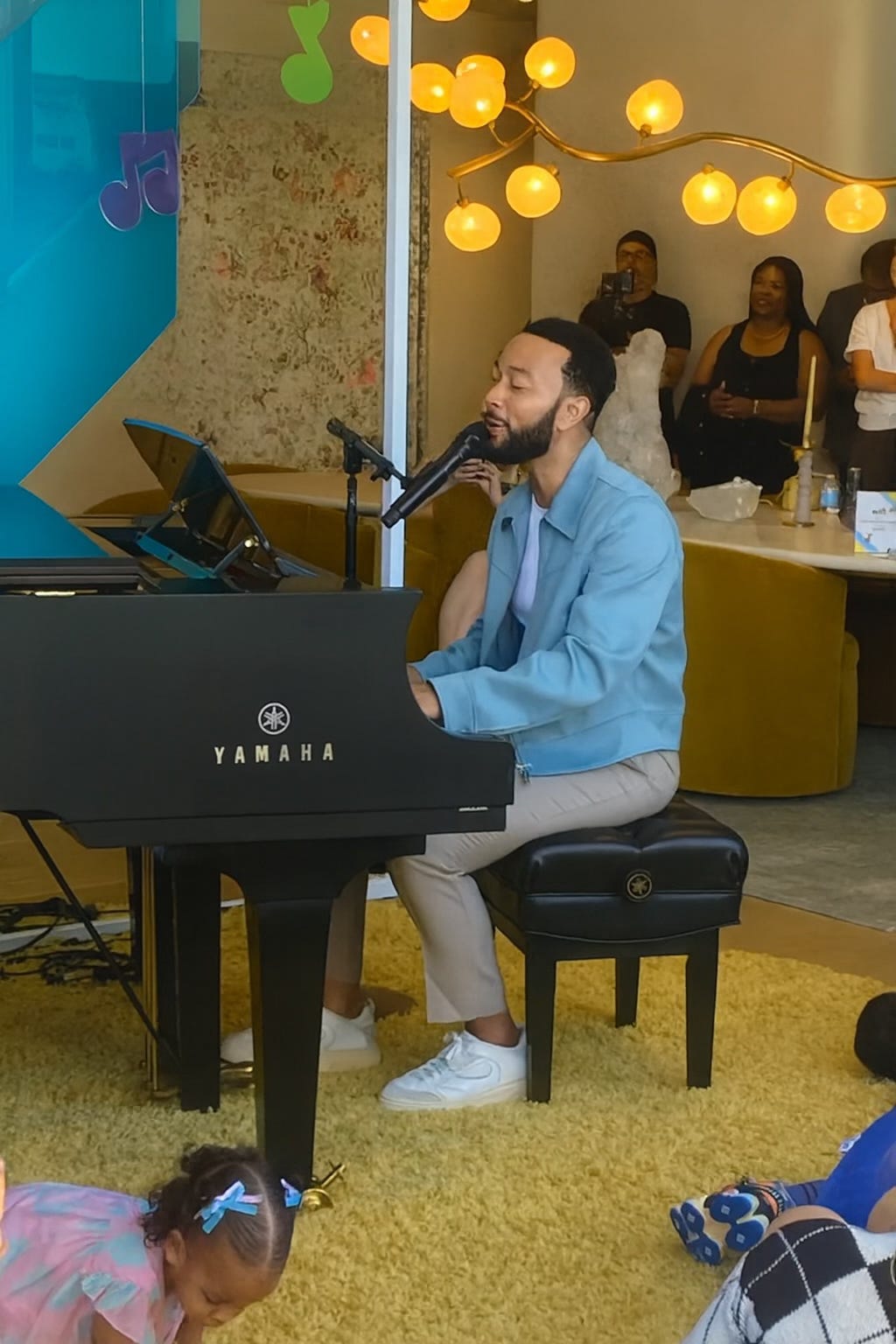
Before I was 11, I sat through the opera Madame Butterfly (albeit a bit antsy) and was mesmerized by A Chorus Line. In college, like so many others, I attempted the guitar. I bought 45s, albums, CDs, and MP3s; now I subscribe to streaming services, and have always played my favorites, from a wealth of genres, on repeat. My house was filled with music. Looking back, I realize that what felt like pure joy was also shaping my brain and heart.
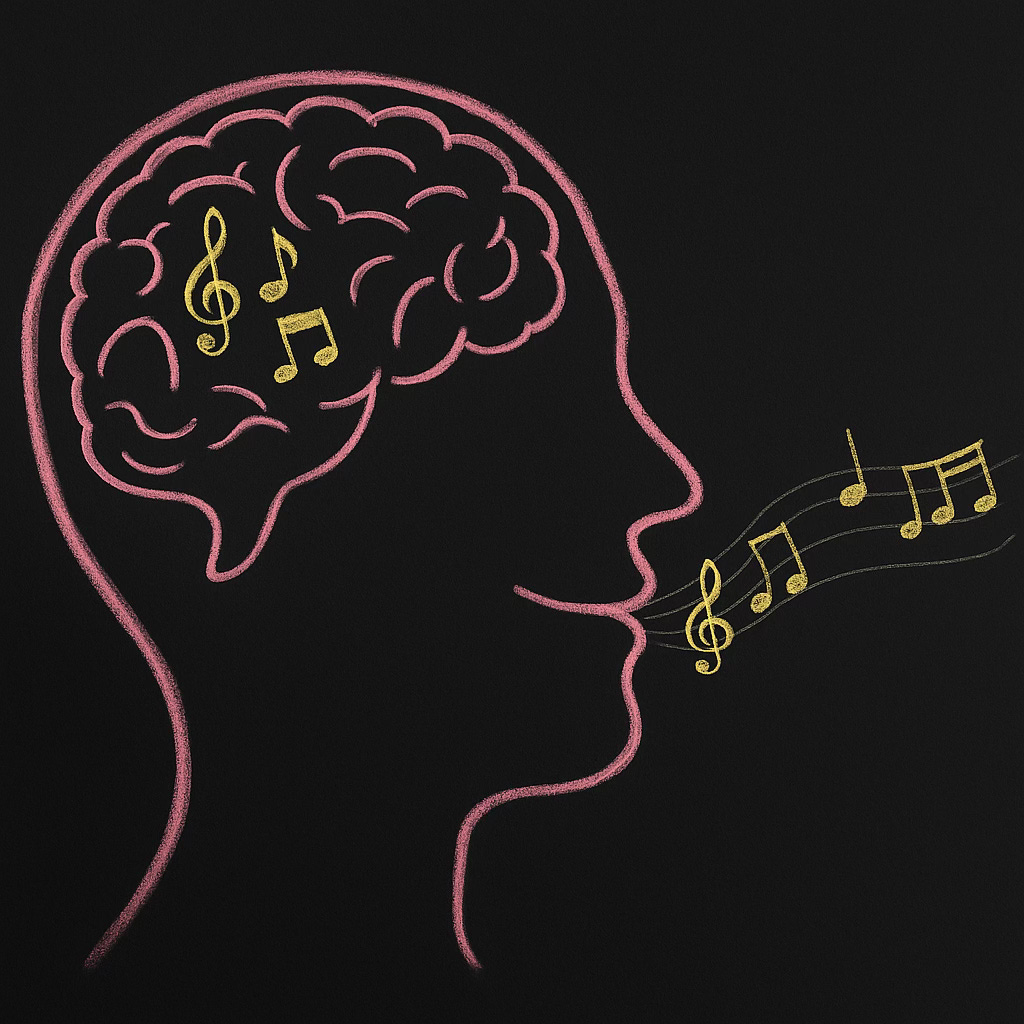
The science: What music does for your brain (and your life)
Here’s what researchers have found in the past decade — and how you can use it:
Boosts memory & learning.
Music engages the hippocampus, helping us store and recall information. In Alzheimer’s, musical memory often persists even when other memories fade.
Try this: Pair facts, affirmations, or new skills with rhythm to lock them in.
Supports kids’ language and math skills.
Early music training can strengthen rhythm perception, tied to phonological awareness and reading. It’s also linked to better spatial-temporal reasoning, the same circuits used in math.
Try this: Let kids clap syllables, sing patterns, or count beats. It builds literacy and numeracy together.
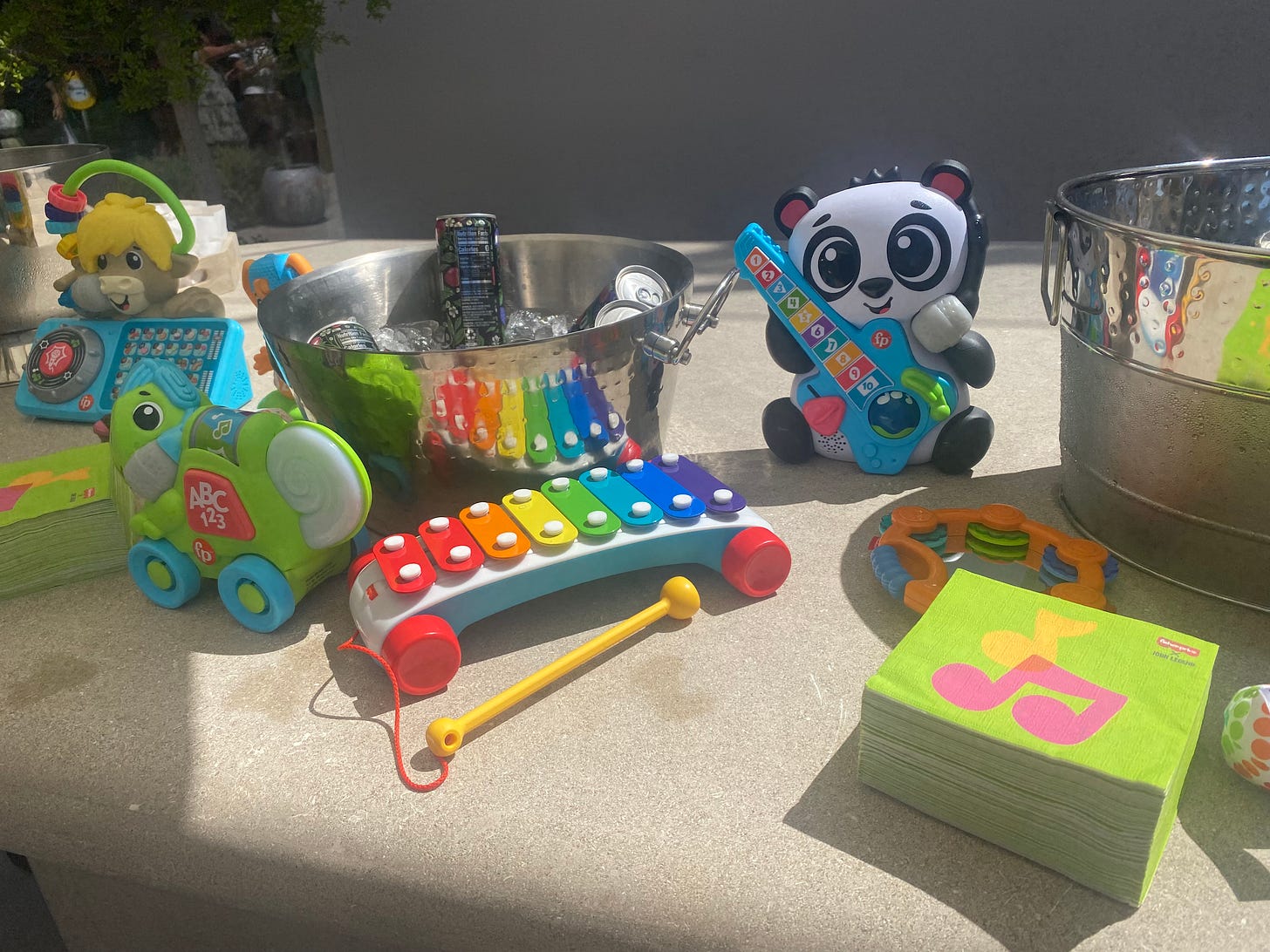
Makes you smarter about self-control.
Meta-analyses show that music training can improve executive functions, such as focus, working memory, and self-discipline.
Try this: Practicing an instrument just 10–20 minutes daily can build mental stamina as much as musical skill.
Lowers stress & anxiety.
Listening to calming music reduces cortisol and blood pressure, easing stress across settings from hospitals to daily life.
Try this: Create a 20-minute “reset playlist” to use when shifting from work to home, or winding down at night.
Releases dopamine & lifts mood.
Music can activate the brain’s reward centers. Studies show it can release dopamine, a neurotransmitter associated with pleasure.
Try this: Keep a playlist of songs that lift your mood. It’s a real, measurable chemical boost.
Strengthens social bonds.
Singing and playing together release oxytocin, align heart rhythms, and reduce stress.
Try this: Join a choir, drum circle, or just sing with friends.
Supports healthy aging.
Research shows that in older adults, engaging with music supports a range of cognitive functions, including memory, processing speed, and problem-solving.
Try this: Encourage parents or grandparents to revisit beloved songs or to learn (even a seemingly simple) instrument.
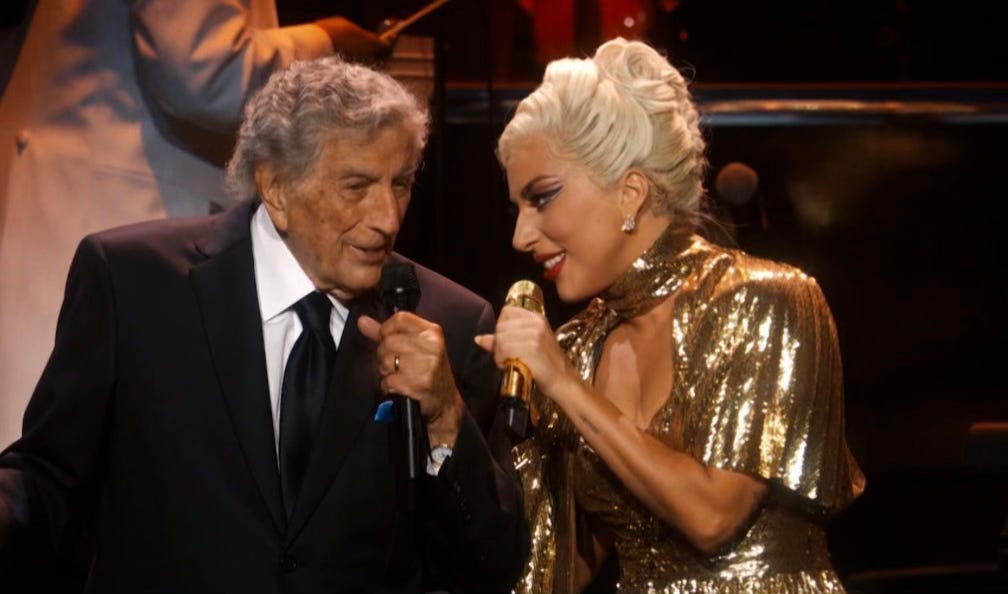
Spiritual & emotional health.
Music can evoke awe and self-transcendence, expanding perspective and resilience.
Try this: Choose music that lifts you into wonder. It can deepen meaning and uplift your mood (as long as it’s not music that fosters negativity and rumination.)
From Legend’s lullabies for his family to Tony Bennett performing at 95 alongside Lady Gaga, the message is music to our ears: music shapes our brains at every stage of life. It can make us calmer, more intelligent, more connected, and more resilient.
So turn on a song, hum in the shower, or revisit a melody that was a happy memory in the soundtrack of your childhood. Your brain — and your wellbeing — will thank you.
✨ Over to you: What’s the song that shaped you? Share it in the comments. I’d love to hear.

